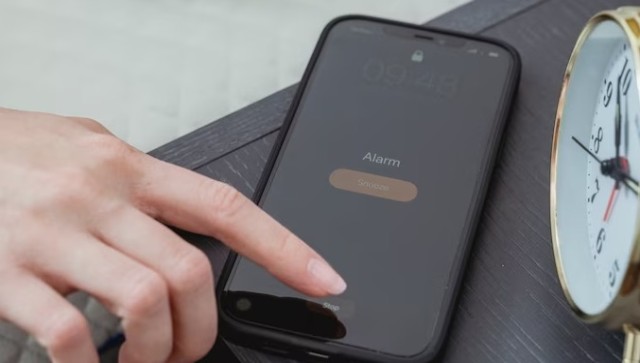The snooze button is often thought to be bad for both sleep and cognitive function. But, that might not be the case anymore. The process of getting up may be aided by snoozing, according to Swedish researchers who studied people who often snooze. According to their research, people who struggle with morning drowsiness may benefit in several ways. Let’s take a closer look. The first study While for many, a reach for the snooze button on the alarm clock is how most days start, researchers at Stockholm University noted that little is still known about the habit, prompting them to conduct two studies, the results of which were published on Wednesday in the Journal of Sleep Research. The first sought to identify who the snoozers actually were via the use of questionnaires collected from 1,732 respondents. Young adults and evening people are particularly prone to this habit. “In the first study we found that in general younger people were the ones snoozing and they were to a high degree night owls,” Tina Sundelin, sleep researcher at Stockholm University, told AFP, noting that the initial finding was not too surprising. Sundelin explained that the most common reason for snoozing was simply “because they felt too tired to get up.” But in some cases respondents said they just enjoying the feeling of staying in bed for a while longer, describing it as a “luxury.” The results show that those who snooze, on average, sleep slightly less and wake up more sleepy than people who never snooze. IANS cited Sundelin as adding that snoozing had no negative effects on cortisol release, morning fatigue, mood, or the quality of sleep during the night. The second study The second study then examined how snoozing actually impacted performance. 31 regular snoozers joined them at their sleep lab for two nights in order to measure their sleep in more detail. They then tested the difference between uninterrupted sleep and getting up immediately or first waking up a half-hour earlier and snoozing before getting up. “What was interesting is that they got less sleep when snoozing but the difference was on average only six minutes,” Sundelin explained, adding that most of them managed to get a lot of sleep during that half hour even though it was disturbed. Furthermore, no one had to wake up from deep sleep in the snooze condition, and the snoozers had slightly better cognitive results immediately after waking up. The test subjects were then asked to perform a few cognitive tests, such as math and memory tests. Despite having their sleep interrupted at the tail end, there wasn’t much difference in how tired they felt, nor was their performance on the tests negatively affected. “In some of the tests, they even performed a little better after having snoozed,” Sundelin said, adding that “the clearest effect is that it isn’t negative.” For Sundelin, the results mean that those who need to snooze a little to ease into the day shouldn’t be too worried. “If you’re snoozing and feel like it’s helping you, it seems like there isn’t much reason to stop doing it, as long you are getting enough sleep before,” Sundelin said. But, Sundelin added, “it’s of course important to remember that the study only included people who are regular snoozers and find it easy to go back to sleep after each alarm”. “Snoozing is most likely not for everyone,” she said, as per IANS. With inputs from AFP
The snooze button is often thought to be bad for both sleep and cognitive function. However, as per a new study by Stockholm University, snoozing may help you in the process of waking up and become more alert
Advertisement
End of Article


)

)
)
)
)
)
)
)
)



